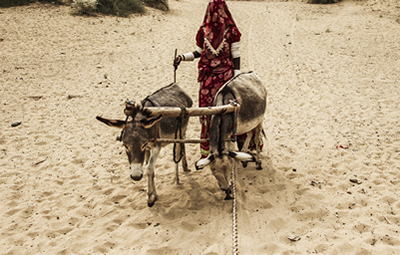Source: OHCHR
A group of human rights and climate change experts discussed how human rights should be a part of any approach to take effective action to mitigate climate change.

The “Climate Justice Dialogue” was sponsored by the UN Human Rights Office and the Mary Robinson Foundation – Climate Justice. The event, earlier this month, brought together more than 50 representatives from the climate change and human rights communities to discuss ways to strengthen the links between the two.
“A human-rights-based approach allows us to identify the most pressing needs of individuals in a highly inequitable global society, with greatly differing social, environmental and economic levels of development,” said Flavia Pansieri, UN Deputy High Commissioner for Human Rights. “Apart from being a human rights obligation, ensuring effective participation of those concerned in conceiving the response to climate change also ensures that it is effective.”
The Dialogue took place on the eve of the meeting of the Ad-hoc Working Group on the Durban Platform for Advanced Action (ADP). The ADP is tasked with formulating the draft climate agreement to be presented during the United Nations Climate Change Conference taking place in Paris in December.
The Human Rights Council has recognized that climate change has a significant effect on the full enjoyment of human rights. It has made it clear that the effect of climate change “poses an immediate and far-reaching threat to people and communities around the world.” Human rights such as the right to safe and adequate water and food, the right to health and adequate housing are threatened by climate change, the Council stated. This is why a human rights lens is important when looking at the issue.
Mary Robinson, Special Envoy of the Secretary-General on climate change and a former UN High Commissioner for Human Rights, said the Dialogue was a unique event.
“This year we have the opportunity to set the world on a path to a stable climate and the realization of equal opportunities for all,” she said. “We must seize this opportunity together.”
At the beginning of the ADP session on the next day, a significant number of groups and countries including Bolivia, Chile, Mexico, Tuvalu, Uganda and the European Union expressed support for the inclusion of strong language on human rights, the rights of indigenous peoples, and gender equality in the text.

